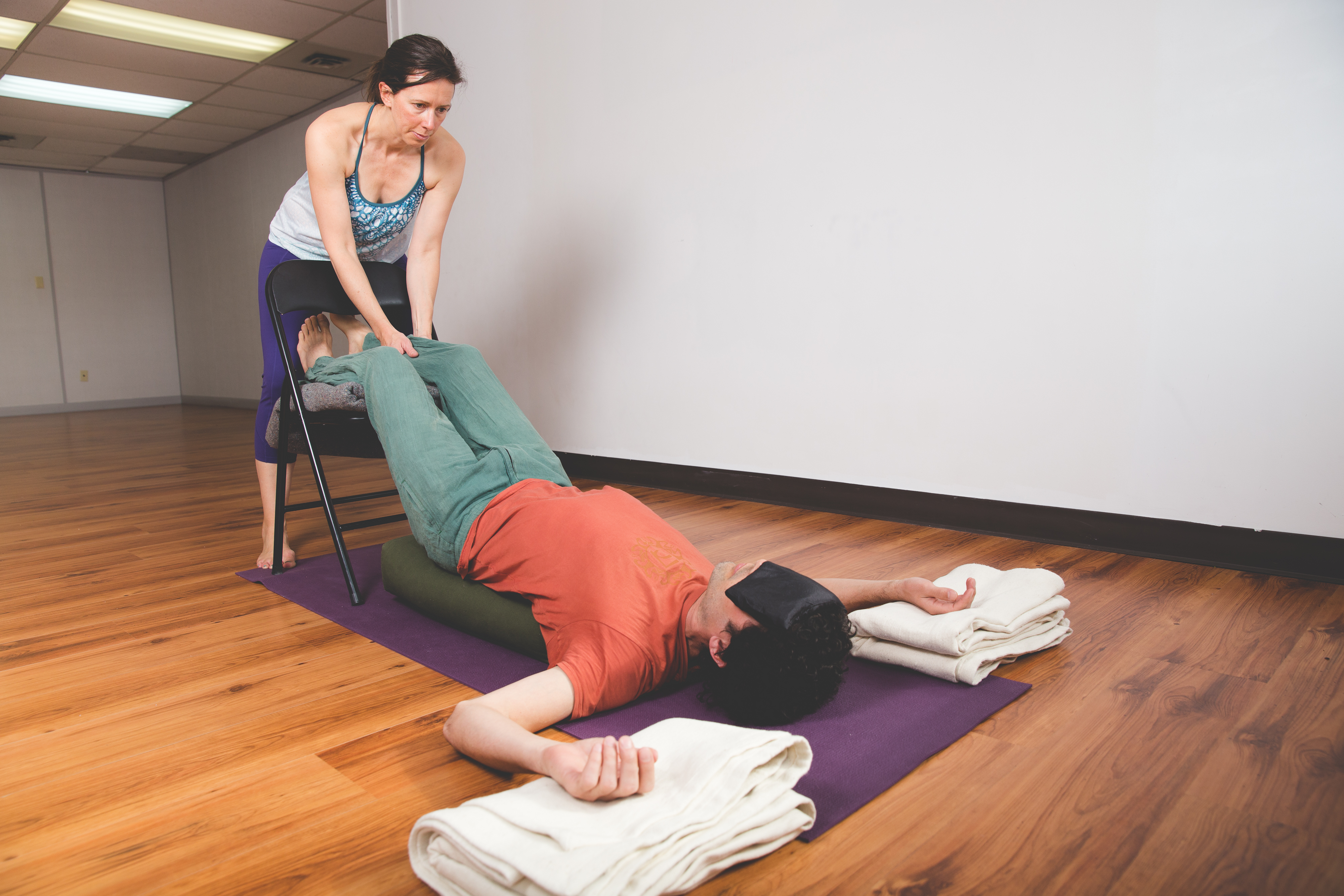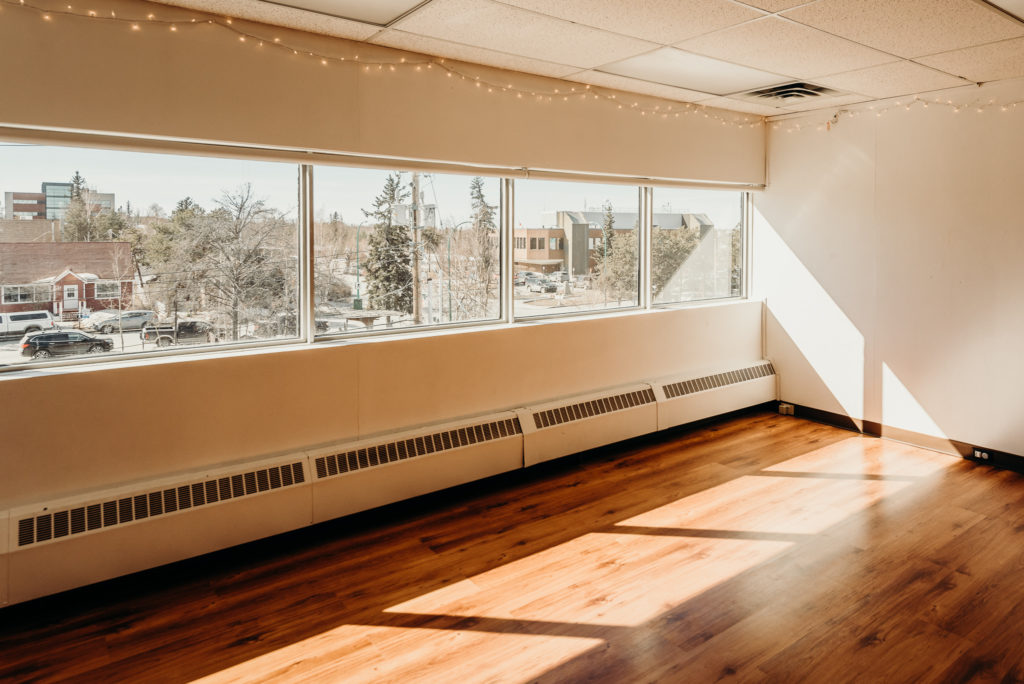Note: This blog post originally published in November 2019 has been edited (May 2022). The main context has not been altered. It has been made shorter and some content related to pre-pandemic classes Jenn offered at RePose has been removed.
As a long-time yoga teacher and yoga therapist I’ve always valued the therapeutic benefits of yoga and for many years I didn’t differentiate between yoga and yoga therapy because I felt all yoga was, in a way, yoga therapy. But there is a difference and I’ll explain that here.
The International Association of Yoga Therapists (IAYT), the organization responsible for certifying yoga therapists, defines yoga therapy as the “specific application of yogic tools – postures/exercises, breathwork, meditation techniques, and more – to address an individual’s physical, mental, and emotional needs.”
Yoga practices encompass much more than the physical exercise (asana) portion of the practice most commonly known in the west. Yoga includes breath practices, meditation and more and yoga teachers will have varying levels of training and experience in sharing a variety of yoga practices. Some yoga teachers will have substantial experience with a wide variety of yoga practices and be comfortable sharing them with yoga students to help them progress.
While the focus of a yoga teacher is to teach yoga techniques, the focus of a yoga therapist is less about teaching yoga techniques and more about applying specific yoga techniques to help a person reduce symptoms they may be dealing with. Yoga therapy targets the practice to a particular condition in a particular person. A yoga therapist takes a holistic approach that sees the individual as a whole person and focuses on their unique needs or goals – whether those relate to decreasing symptoms of chronic pain, injury recovery, mental health, illness support, healthy aging, improving flexibility or overall well-being.
“When clients seek out a yoga therapist or a therapeutic group, they are usually not coming to learn yoga, but to get help with or relief from some symptom or health condition that is troubling them. In most cases, the instruction focuses on their condition and how the yoga techniques can help them feel better or improve their function, rather than on the techniques or methods of yoga practice.” ~ Gary Kraftsow, C-IAYT
Yoga therapists often consider the whole person through a yogic framework called the Pancha Maya Kosha Model that considers the physical health of the person as well as additional layers to health beyond the physical. Many yoga therapists (myself included) are also trained in a comparable western approach called the biopsychosocial model (or sometimes biopsychosocial-spiritual).
Because yoga therapists are applying yoga techniques to help clients find relief from symptoms they must not only have training in the yoga techniques or practices themselves, but must also have training in the therapeutic application of these techniques. At present, the minimum training standard for a yoga teacher is 200 hours while the minimum standard for a yoga therapist is an additional 800 hours (1000 hours). This additional training for yoga therapists includes education about many health conditions and how to apply yoga techniques holistically to address the whole person. Some yoga therapists will have pursued additional specific training in their areas of specialization.
I try to keep my page updated with my areas of specialization. If you’re interested in pursuing yoga therapy with me and aren’t sure if I can help with what you’re looking for please send me an email.

When people book with me privately, they usually come for yoga therapy – because they want specific yoga techniques to help them manage symptoms or overall wellness. However, some people come for yoga – they want to learn and improve their ability with specific yoga practices – whether those are postures or breath practices or some other aspect of yoga practice. In both cases, my focus is on helping individuals find practices relevant to their goals for our work together.
Hopefully, this blog has clarified some differences between yoga and yoga therapy. While any yoga class may be therapeutic and you may have experienced therapeutic benefits of a yoga practice, yoga therapy is more specific and targeted towards symptom reduction or management rather than towards advancing skill at particular yoga techniques.
A few additional points. Yoga therapists do not diagnose conditions – yoga therapy is a holistic and complementary therapy not meant as a substitute for medical advice. Yoga therapists are trained to view health conditions through the yoga therapy lens. For more on the scope of a yoga therapist click here.
For more on what yoga therapy is click here.
If you are curious you can learn more about booking privately with me here. Send me an email if you have questions or want to learn more. Or check out my online classes here.


